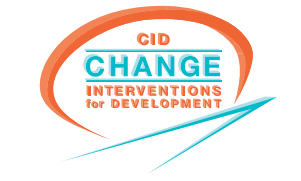Communication for reform has been covered in workshops, and online and distance learning courses reaching some 7,000 participants worldwide. This approach effectively addresses implementation challenges in various sectors, including health, education, environment and conservation, infrastructure, urban development, public–private partnerships, governance, and public sector reform. In September 2014, ADB launched a learning program, Mobilizing Multi-Stakeholder Action for Reform, and invited groups from government, development partner agencies, academia, civil society, and the private sector. ADB’s learning program aims to enhance participants’ skills in navigating the reform process. It illustrated how to mobilize groups by engaging them in creating pro-reform coalitions. Reforms often fail when stakeholder interests are not adequately satisfied and differences in beliefs, attitudes, and mindsets are not acknowledged. The workshop, therefore, helps participants recognize political economy issues, differentiate technical from adaptive leadership challenges, and use negotiation techniques that incorporate the different perspectives of stakeholders to reach a durable agreement. The program has been adapted to various modes of delivery, with the twin goals of expanding reach and finding ways to embed engagement within organizations’ daily business processes. In September 2015, this approach was further demonstrated in a workshop developed for 30 senior government officials from Nepal. The earthquake on 25 April 2015 highlighted a need for the Government of Nepal to strengthen its capacity to manage conflict and understand the underlying interests of multiple stakeholders to provide a rapid response to crises. Fluid techniques that transcend political and economic interests are essential for reducing suffering and loss among the poor and the powerful alike. The crisis provided an opportunity to recreate and reengineer systems that could endure and bring the government into greater harmony with the needs of its stakeholders. The workshop was designed to help government officials apply the principles and tools of strategic communication and negotiation in the immediate, medium, and long term. The framework has been utilized in regional workshops for country participants and ADB staff to address implementation issues in several sectors. These include public sector management and governance, infrastructure, water and sanitation, health, education, and social development. A capstone negotiation case on a controversial water reform project provided participants with live negotiation experience among stakeholders with competing interests.7 In 2016–2017, a joint effort of the Global Leadership Academy and ADB tested an ambitious initiative where the skills for engagement were included in a 10-month leadership development program offered to private sector chief executive officers, senior government officials, academics, and heads of civil society organizations. This capacity development initiative emphasized the diversity of participants’ work experience, expertise, and aspirations. It aimed to hone leadership capacity to address global issues. The global leadership and innovation laboratory demonstrated the value of using a blended approach—10 webinars were conducted after the second face-to-face leadership laboratory to prepare for the third face-to-face leadership laboratory. The webinars and individual online coaching inspired participants to master content and process. It provided opportunities to apply the concepts, tools, and approaches to a capstone negotiation case.
